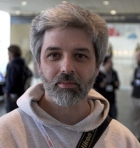Drupal X 10: growing our community

Drupal X 10: growing our community
Room:
tags
In his Drupalcon keynote yesterday, Dries noted once again the necessity of increasing the number of skilled Drupal practitioners to sustain the Drupal project's trajectory. The Drupal conference itself, it has been pointed out, mainly attracts the (aging) faithful. Encouraging new talent and growing the skills of the newly interested is really the challenge. We should be taking this challenge on as our job.
Some of us do and have built a business model around the idea of sustaining an evolving Drupal ecosystem via a variety of training, collaboration and community organizing techniques.
There are no official sessions addressing this critical aspect of sustaining the Drupal culture and the Drupal project itself. But now there is a Birds of a Feather discussion scheduled to explore on-the-ground methods of skill-building, knowledge transfer and the business models that can arise around them.
Co-organizers Barry Madore (Advantage Labs), Heather James (Acquia) and Sofian Benaissa (Koumbit) each bring a unique perspective and experience to the discussion. Advantage Labs has pioneered tiered services for Drupal developers and end-users including their innovative "Lab session" model. Heather heads up Acquia's training initiative and uses creative visualization techniques in her work. Sofian comes from a Drupal-focused worker's collective in Montréal born from the needs of a group of committed technologists working in the activist and NGO spheres.
Join us for discussion and idea sharing.
===============
FYI: More ideas for discussion are outlined below in the original "Developing Drupal Communities of Practice" session proposal
Drupal thrives when it is supported by robust communities of both Drupal users and developers. To ignite these communities we need to provide opportunities for people to learn about Drupal and how it can help them. To sustain these communities we need to provide support and opportunities for growth.
We have all participated in communities of interest, where a group of people interested in a topic organize and share information. In the Drupal community, this means:
- Attending user group meetings
- Coming to DrupalCON
- Participating in events and training sessions
- Posting questions and solutions in Drupal forums and IRC channels
But where do we go from here? Communities of interest need to evolve into something that cultural anthropologist Etienne Wenger calls "communities of practice." A community of practice is no longer just interested people, it's a group of active practitioners who hone their craft though hands-on, participatory and collaborative activities. Working together, members solve their day-to-day problems and learn new skills.
In the Twin Cities, we are building on the thriving community of interest and evolving a Drupal-focused community of practice. Developers, community managers and end-users do more with Drupal by:
- Participating in a Developers Alliance (Drupal consultancy support program)
- Building Drupal development businesses and collectives
- Attending study groups and drop-in support groups
- Collaborating on projects
- Learning how to provide documentation and participate directly with the Drupal community at large
Communities of practice increase skill-building, business growth and contribute more to the Drupal community -- from the ground up rather than from the top down. It's in everyone's best interest to foster and support local communities of practice.
In this session we'll detail our process for supporting a community of practice demonstrating how this benefits Drupal businesses and Drupal itself. Come share your ideas and take away new strategies.
